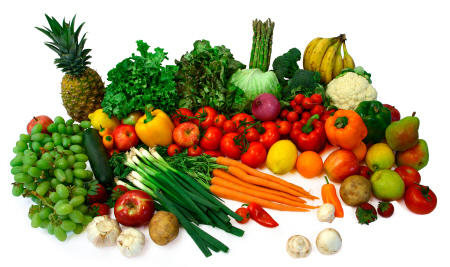|
Lisa Donaldson APD
Ever get a sudden urge to eat something and all you can do is think about it? It’s an insatiable hunger that cannot be abated by celery or carrot sticks. It’s gotta be chocolate… or chips… or a burger… and you’ve gotta have it NOW!?! “Why do I get cravings?” Fact is researchers are still trying to work that one out! Scientists have recognised that it is a different sensation to hunger, but cannot pinpoint the true cause. The body is able to regulate hunger but cravings can be relentless! Cravings may be triggered by a memory, emotions, a habit or even a slight deficiency. We do know that sugary and fatty foods are linked to pleasure. They release chemicals known as ‘opioids’ into the bloodstream that bind to receptors in our brain that signal ‘pleasure’. People feel much better after they have their ‘hit’, a bit like a drug addiction for those who struggle with emotional or binge eating. The ‘euphoria’ that follows is hard to resist. WHAT IS YOUR TRIGGER? · Did you hear someone talking about pizza for dinner? · Did you smell warm cinnamon donuts and coffee as you passed a café? · Did you see a TV add for a chocolate bar on the television? · Do you buy a packet of chips from the servo every time you get petrol? Cue: habit Start to get in touch with true hunger, signalled by a belly growl and grumble, rather than a habit or an environmental trigger. Most of the questions above are linked to ‘false hunger’ prompted by a sensation. Something you saw, heard or smelt. How can I control my cravings? · Have a drink of water, often thirst is confused for ‘hunger’ · It’s a great idea to ‘make a date’ with your favourite/indulgent food once a week. When it is less of a daily treat it becomes more of special event and you will learn to savour it more! · Have a little of something you truly want; because we all know after you devour the fruit bowl you’ll probably still have the chocolate bar anyway! · Get busy – are you thinking about food because you are bored? · Refuel after you exercise. A sweet or sugary craving could be linked to not replenishing your glycogen stores adequately after training. · Get a good nights sleep. If you need a pick me up at around 3pm every day, perhaps you aren’t getting enough rest. · Eat well balanced meals. If you are cutting out carbs or fat (critical macronutrients) you are probably going to want carbs and fat! If you are skipping meals, you are going to want calorie dense foods to fill the gap. Whatever your craving is, recognise it and take action. If you decide to surrender to your craving, eat it slowly and savour it. Sometimes a small bite is enough to satisfy the desire. Until next time. Eat well… Be well. Lisa xx
0 Comments
Jenelle Croatto APD
As we gear up for the cooler weather take a read of these top 10 immune boosting nutrition tips to help keep the sniffles away. 1. PROBIOTICS A 2009 study published in the academic journal Paediatrics showed that children who were supplemented with a probiotic had fewer respiratory tract infections and days absent from childcare than those who were given a placebo. Natural yoghurt is a wonderful source of probiotics or you could try taking a probiotic drink such as Yakult. 2. PREBIOTICS Did you know that 70% of our immune system can be found within our gut! Prebiotics such as resistant starch act as a fuel for healthy gut bacteria and contribute to happy functioning gut. Great sources include legumes, bananas and cooked and cooled boiled potatoes. 3. SMARTEN UP YOUR CARBS! Cut down on the refined sources of carbs such as white bread, juice and soft drink and instead focus on low GI options, which provide a slow trickle of energy into our system. Refined carbs often cause dramatic spikes in blood sugar, which can stress the immune system. 4. COLOURFUL VEGGIES Vegetables including broccoli, carrot, sweet potato, red capsicum and mushrooms (any veg really) are bursting vitamins and antioxidants for a robust immune system. 5. VITAMIN C Many of us think ‘vitamin C’ when it comes to kicking the common cold and they’re right to think so as this powerful vitamin is known to help reduce the length and severity of a cold. Amazingly, just one kiwi fruit contains your daily requirements for vitamin C! Other top sources include oranges, lemon/lime (squeeze juice over salads), berries, broccoli, tomato and capsicum. 6. VITAMIN D While the incidence of ‘the flu’ is thought to be higher during winter due to us living in closer proximity, another theory suggests a link with reduced exposure to sunlight. A 2010 study published in The American Journal of Clinical Nutrition demonstrated that children supplemented with vitamin D during winter were less likely to succumb to the seasonal flu than the children who were given a placebo. This winter roll up your sleeves while hanging out the laundry and try to get 2-3 hours worth of sunlight spread throughout the week to you face, arms and hands. 7. GREEN TEA Green tea, as with black and white tea, contains many powerful antioxidants. Findings from a study published in Immunology Letters shows how green tea can increase the number of regulatory T cells and in turn improve immune function. 8. AVOCADO, NUTS & SEEDS Not only are these foods an excellent source of healthy fats which contain natural anti-inflammatory properties, they also provide a superior source of vitamin E which is essential to a healthy immune system. 9. LEAN RED MEAT Adequate protein is needed to support strong immune defences and lean red meat is an easy way to boost your intake. By eating meat you’ll also receive a big hit of zinc, which is needed to help infection-fighting white blood cells develop and function well. 10.KEEP HYDRATED Being dehydrated can actually make your symptoms worse and can contribute to feelings of fatigue. By keeping a well-hydrated system your digestive system will also function better and you body will be better able to flush toxins from its system. Aim for around 2000ml per day or at least 35ml/kg. |
News FEEDFitness, Energy, Education & Diet Archives
June 2020
Categories
All
|


 RSS Feed
RSS Feed